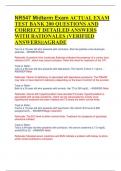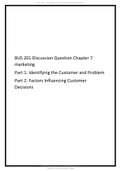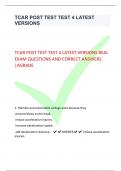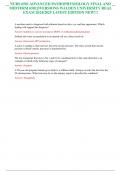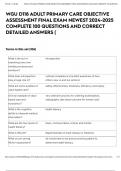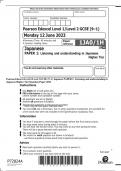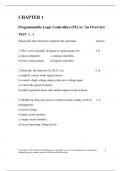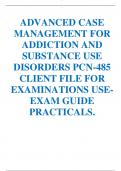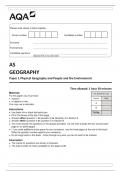Exam (elaborations)
NR547 Midterm Exam ACTUAL EXAM TEST BANK 200 QUESTIONS AND CORRECT DETAILED ANSWERS WITH RATIONALES (VERIFIED ANSWERS)|AGRADE
- Module
- Institution
NR547 Midterm Exam ACTUAL EXAM TEST BANK 200 QUESTIONS AND CORRECT DETAILED ANSWERS CORRECT DETAILED ANSWERS WITH RATIONALES (VERIFIED ANSWERS)|AGRADE Terri is a 79-year old who presents with confusion. She has positive urine leukocyte esterase. - ANSWER-Refer Rationale: A positive Urine Leuk...
[Show more]
